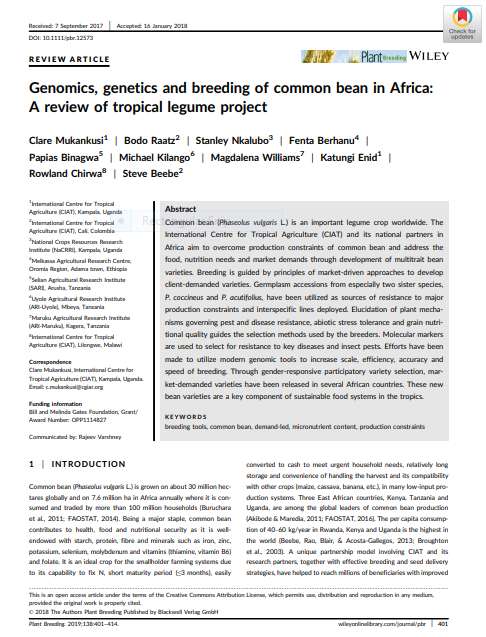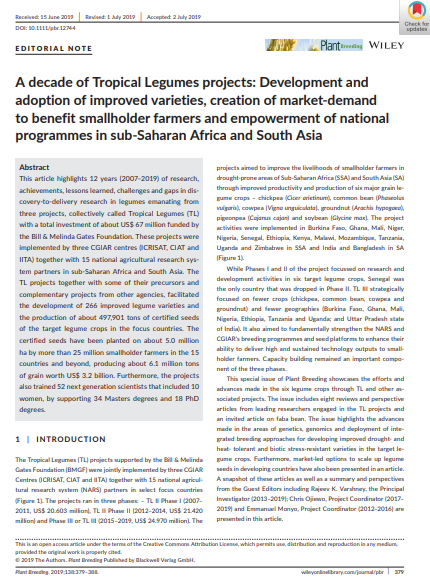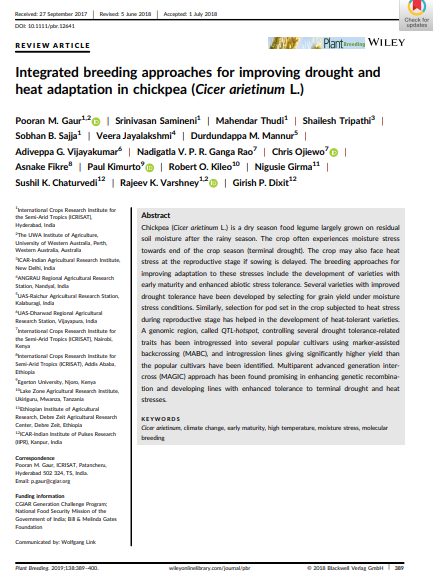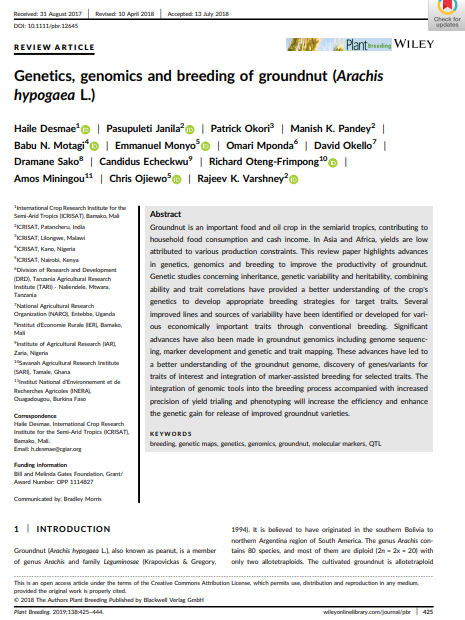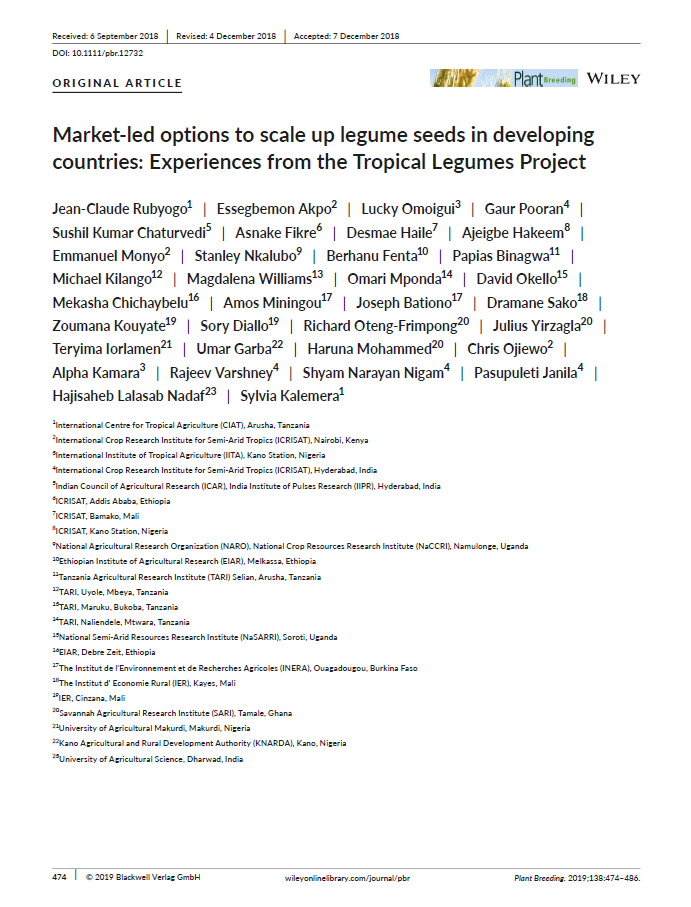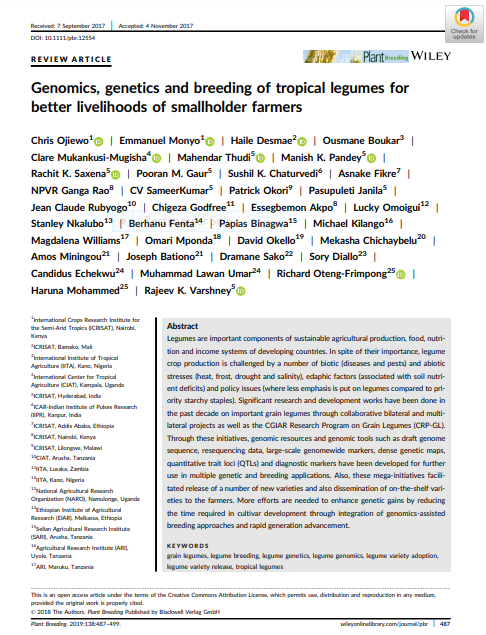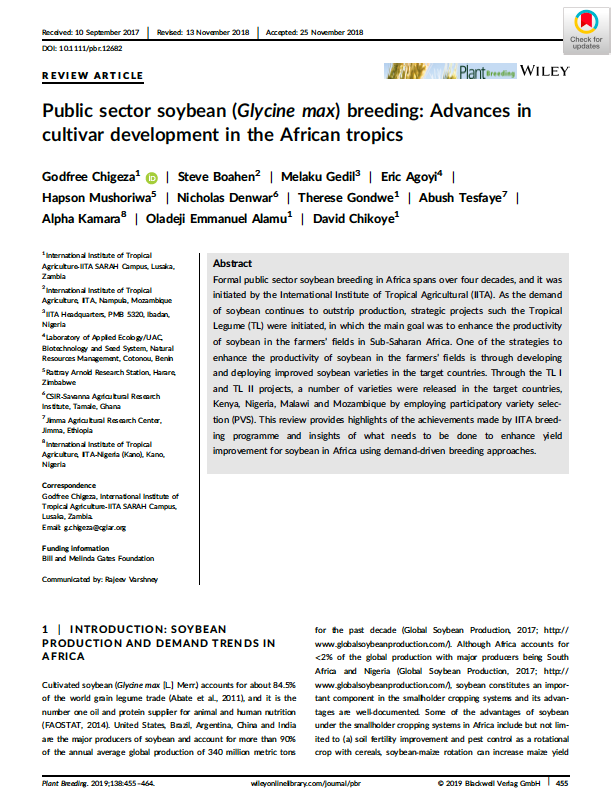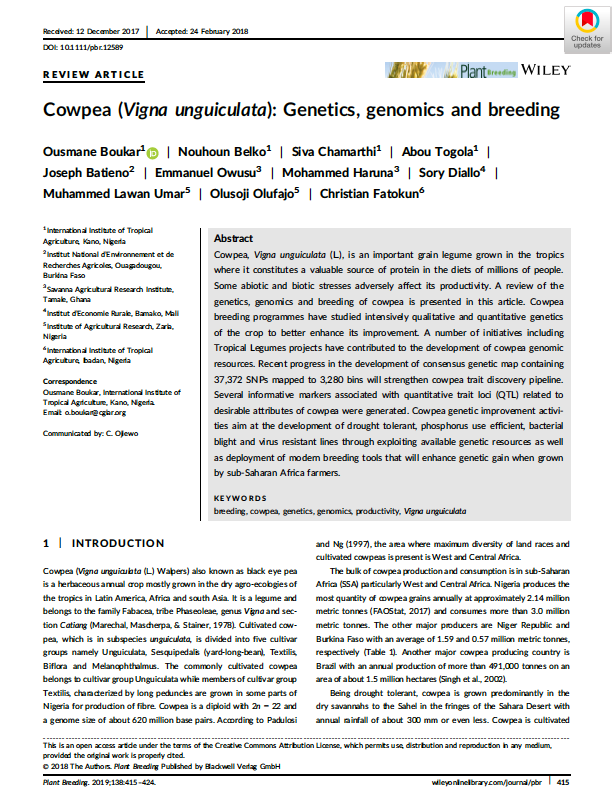Genomics, genetics and breeding of common bean in Africa: A review of tropical legume project
Summary
Common bean (Phaseolus vulgaris L.) is an important legume crop worldwide. The International Center for Tropical Agriculture (CIAT) and its national partners in Africa aim to overcome the production constraints of common bean and address food and nutrition needs and market demands through development of multi-trait bean varieties. Breeding is guided by the principles of market-driven approaches to develop client-demanded varieties. Germplasm accessions, particularly from two sister species, P. coccineus and P. acutifolius, have been utilized as sources of resistance to major production constraints and interspecific lines deployed. Elucidation of plant mechanisms governing pest and disease resistance, abiotic stress tolerance, and grain nutritional quality guides the selection methods used by the breeders. Molecular markers are used to select for resistance to key diseases and insect pests. Efforts have been made to utilize modern genomic tools to increase the scale, efficiency, accuracy, and speed of breeding. Through gender-responsive participatory variety selection, market-demanded varieties have been released in several African countries. These new bean varieties are a key component of sustainable food systems in the tropics.
Open resource Download resource Access resource on external site